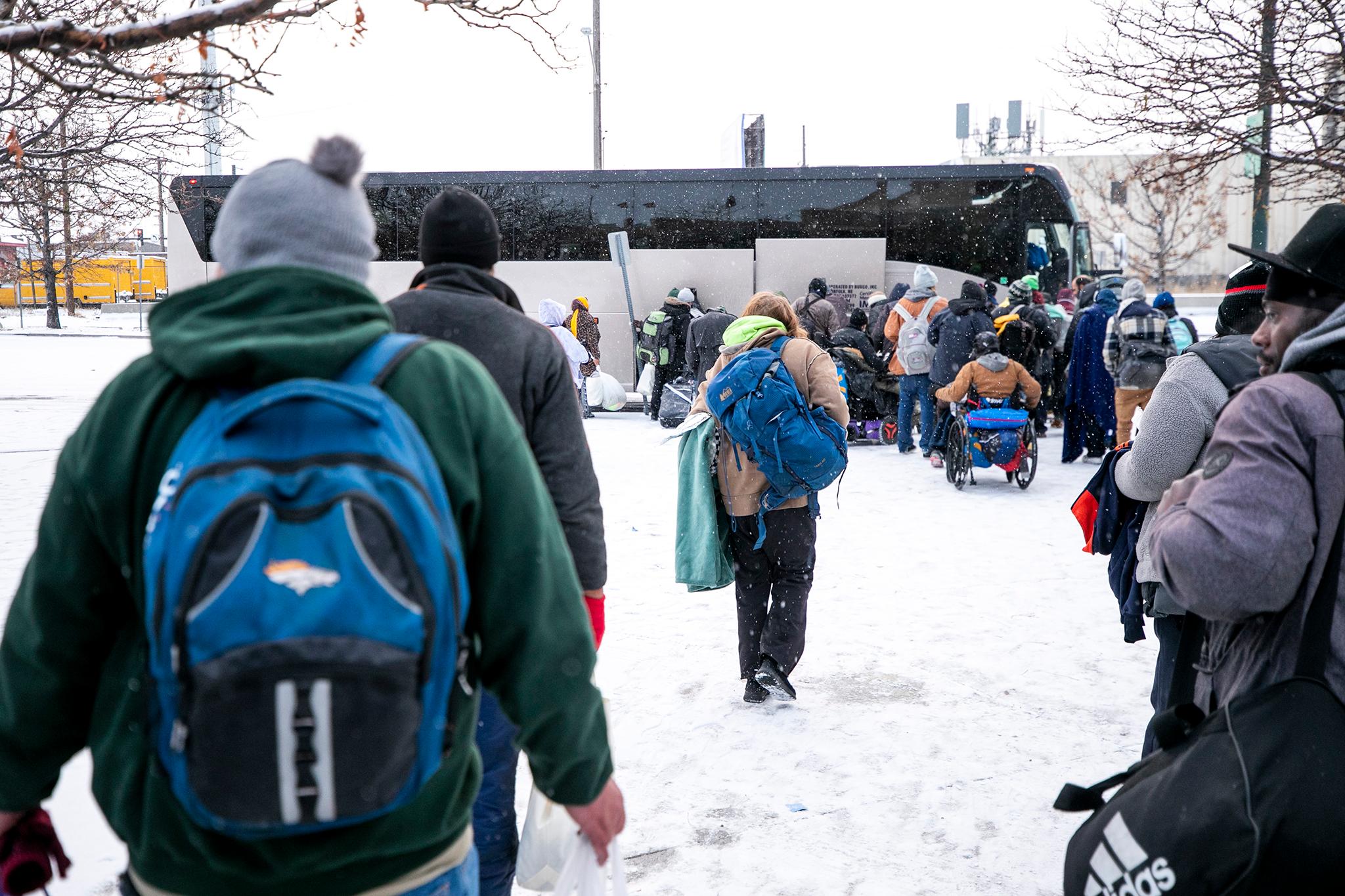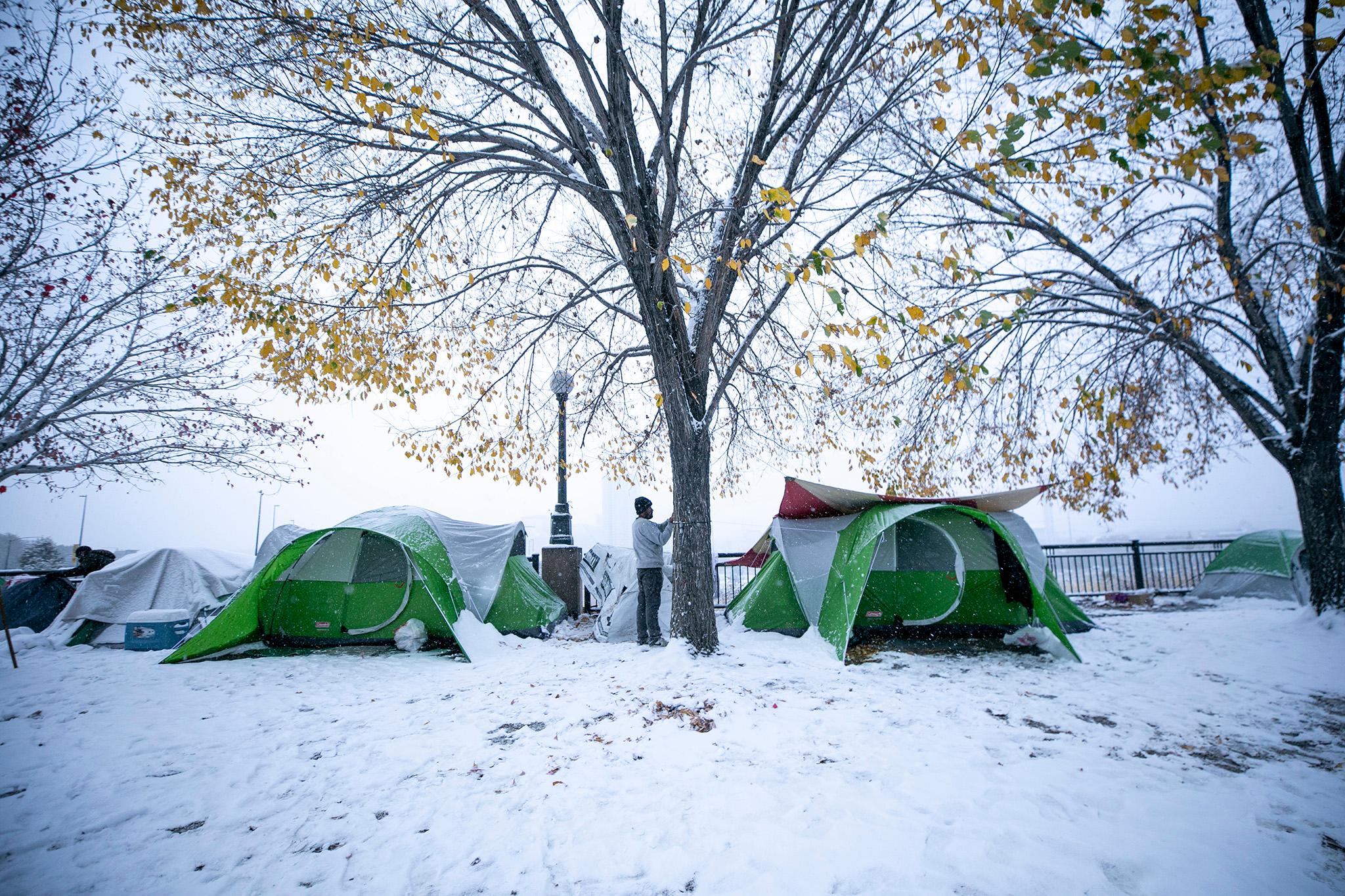Denver's current threshold to open emergency warming shelters or stop encampment sweeps that boot people from the warmth of their tents onto the sidewalk is 20 degrees. That's far below the 32-degree temperature that can trigger hypothermia or frostbite that can lead to lost limbs and even lost lives.
On Monday, At-Large Councilmember Sarah Parady and District 8 Councilmember Shontel Lewis introduced new legislation to the council's Budget and Policy Committee that would raise the threshold for opening warming centers and banning sweeps from 20 degrees to 32 degrees.
"I'd like for us to set policy for the city based on medical evidence on when we will ask people to exit and move during cold temperatures and for when we will open our warming shelters," Parady said.
The temperature threshold is currently established in the Office of Emergency Management's Cold Weather Sheltering Plan, in collaboration with multiple departments under the authority of the mayor.

In addition to establishing a warmer threshold, the proposed legislation would take the power from the mayor and city agencies and put it in City Council's hands.
The proposed legislation was introduced less than a week after University of Colorado researcher Dr. Joshua Barocas presented to Council's Safety, Housing, Education and Homelessness Committee that the city's current 20-degree threshold for stopping sweeps and opening warming centers was not based in scientific evidence.
Barocas argued the city was putting Denverites experiencing homelessness at an increased risk of hospital visits and death and that City Council had an opportunity to save lives by changing the threshold.
Other cities have significantly higher thresholds for activating emergency weather services, Barocas said. For example, New York City has a threshold of 32 degrees.
Why is Denver's so low? When Council members asked representatives of multiple city agencies, nobody offered a concrete answer.
Barocas also noted that the threshold for hypothermia could be as high as 40 degrees in wet conditions. The new policy does not currently take that fact into account.
Ahead of Thanksgiving weekend, when temperatures dipped well below freezing, Barocas urged Council to take action fast.
"If you're reconsidering a scientifically valid approach to warming shelters, now would be the time to do that," he said.
Warming shelters were opened over the weekend, and even so, four people died outdoors on the streets, according to Denver Police.
On Monday, Council members briefly discussed the proposal, raising concerns about how wind chill factors into the threshold, why the city has used 20 degrees in the past, and whether mandating people move indoors could save more lives and whether that practice would be constitutional.
The Safety, Housing, Education and Homelessness Committee will consider the proposal on Dec. 20.












